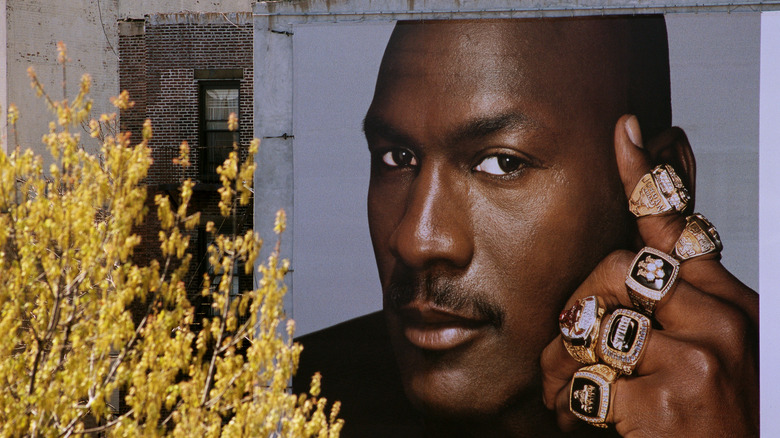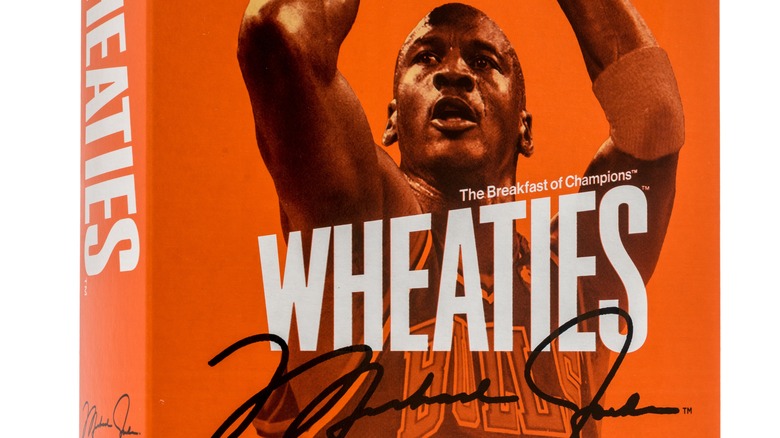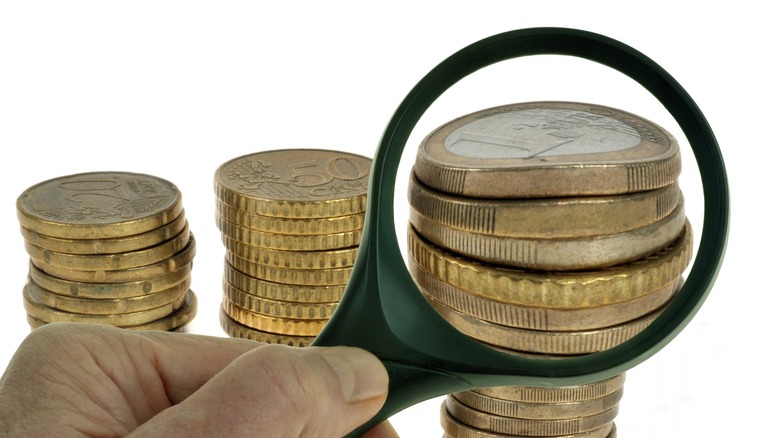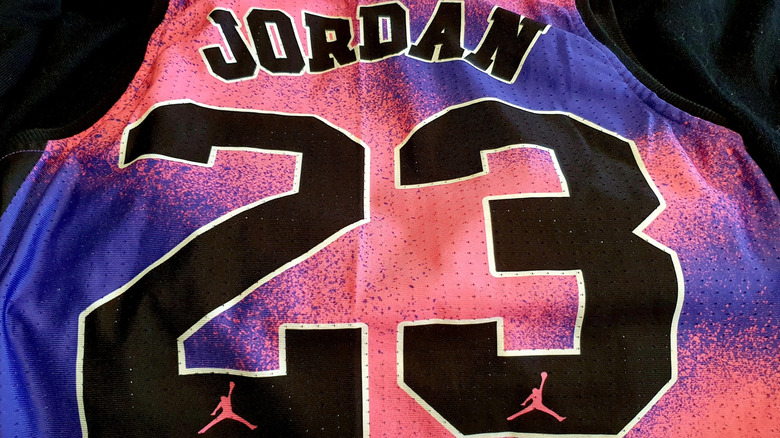Selling This Basketball Collector's Item On Amazon Could Earn You $99,999
There are some purchases that embody the old adage "you get what you pay for." Examples include interior house paint, mattresses, or LASIK eye procedures all of which require a higher price tag for a higher quality of product or service. While that axiom seems to make common sense, it flips topsy turvy in the world of collectibles and sports memorabilia. One of the greatest examples of this upside down economic model is the $99,999 price tag for a signed rookie "card" of NBA legend Michael Jordan listed on Amazon.
During his career, His Airness — a nickname earned from Jordan's incredible ability to seemingly defy gravity while dunking — earned dozens of titles and awards including 14 MVP awards; was chosen for 14 All-Star games; won six NBA titles, and two Olympic gold medals. The shooting guard transcended sports with multi-million dollar endorsement deals with Nike, Gatorade, Hanes, and Upper Deck trading cards. Ironically, the aforementioned ultra-pricey Amazon listing is posted as authenticated Upper Deck rookie card art.
Three things collectors chase
The total trading market for sports memorabilia is estimated to be $30 billion annually and Jordan's share of that has only increased over time. The jersey he wore in Game 1 of the 1998 NBA Finals sold for more than $10 million in 2023. Whether its an autographed Air Jordan sneaker, cereal box, or Amazon-listed rookie card; collectors love Jordan merch.
Collectibles and toy expert, Bob Friedland, has more than 20 years experience in the space and led communications at Toys"R"Us and FAO Schwarz, as well as worked with Hasbro, Target, Bandai, and others. He says the reason why Jordan's signed memorabilia commands such a premium is because it taps a powerful trifecta for collectors: scarcity, nostalgia, and cultural relevance.
"A card like an autographed Michael Jordan rookie card offers all three. The first reason is that Michael Jordan is an icon. Even if you know nothing about basketball, you likely know Michael Jordan," Friedland explains. "For many collectors, the emotional pull of owning this card outweighs the logic of the listing quality, which is why unverified signings and lower-quality cards are still highly valuable."
Red flags that should make you pause
One of the attributes of collectors is that, by definition of their name, they are willing to make purchases. However, where ever there are motivated buyers you can bet that motivated scammers are not far away. For instance, the collectible coin market regularly informs new entrants against counterfeits, high-pressure sales, or fake error strikes to a coin since genuine "mistakes" can make a minted coin more valuable.
In the case of Jordan rookie card listed on Amazon there are potential issues that should cause pause for non-experts. It only has a single image of the card. There are eight reviews for this listing, all of which are negative and almost all of them claim it's fake. The description is also inaccurate as it states that autographed cards have a hologram case but the image does not have that and the listing doesn't mention the collectible's condition.
"The first red flag is a vague description that doesn't mention the item's condition. Another is if it's an autographed item that is listed for a very high price that doesn't include a certificate of authenticity," said Friedland.
How to shop smart for high-end collectibles
After tracking down the company associated with the listing, sportsmemorabilia.com, an account executive with the company revealed that it is not an actual trading card. Instead it's an original 12" x 17" painting by sports artist Chuck Gillies that Upper Deck commissioned of Jordan's rookie card. Jordan reportedly then signed the unique art piece with gold ink.
The lesson being that collectors and buyers need to do their research. For trading cards, autographs, comic books, or vintage magazines ask sellers for certificates of authenticity from companies such as PSA, Beckett Grading Services, or Certified Guaranty Company. While the saying "you get what you pay for" seems to ring true for common purchases, when it comes to collectibles a better mantra to follow might be "buyer beware."



